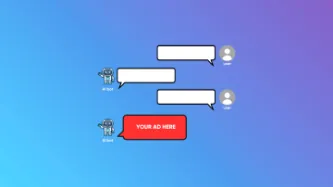Search
Content type: Long Read
What happened?On 19 July 2024, American cybersecurity company CrowdStrike released an update to its CrowdStrike Falcon software that ultimately caused 8.5 million computers running Microsoft Windows to crash. The damage done was both deep and wide: deep because the computers affected were unable to recover without direct user intervention. Wide because a whole range of companies - from airlines to healthcare to media - across a whole range of countries - from Sweden to India to New Zealand -…
Content type: Long Read
IntroductionIn early October this year, Google announced its AI Overviews would now have ads. AI companies have been exploring ways to monetise their AI tools to compensate for their eye watering costs, and advertising seems to be a part of many of these plans. Microsoft have even rolled out an entire Advertising API for its AI chat tools.As AI becomes a focal point of consumer tech, the next host of the AdTech expansion regime could well be the most popular of these AI tools: AI chatbots.…
Content type: Long Read
IntroductionHarnessing new digital technology to improve people’s health is now commonplace across the world. Countries and international organisations alike are devising digital health strategies and looking to emerging technology to help solve tricky problems within healthcare. At the same time, more and more start-ups and established tech companies are bringing out new, and at times innovative, digital tools aimed at health and wellbeing.
Content type: Examples
Google has settled a case brought in 2020 by the parents of an Illinois girl who sued the company in state court alleging that it had violated two sections of the Biometric Information Privacy Act. The case also alleged that Google had violated the law by failing to obtain parental consent to collect, store, and use biometric data belonging to millions of children and had illegally harvest other data such as physical location, website histories, personal contact lists, passwords, and…
Content type: Long Read
INTRODUCTION
In recent years, major tech platforms have been rapidly evolving their business models. Despite their dominance in various markets, tech giants like Google and Meta are venturing into new territories to expand their user base. One of the most striking ventures has been their foray into the "connectivity market" through substantial, and occasionally unsuccessful, investments in network infrastructure.
Many tech companies are investing resources into network infrastructure, either…
Content type: Explainer
IntroductionThe emergence of large language models (LLMs) in late 2022 has changed people’s understanding of, and interaction with, artificial intelligence (AI). New tools and products that use, or claim to use, AI can be found for almost every purpose – they can write you a novel, pretend to be your girlfriend, help you brush your teeth, take down criminals or predict the future. But LLMs and other similar forms of generative AI create risks – not just big theoretical existential ones – but…
Content type: Long Read
IntroductionFor years PI has been documenting the market dominance and associated power of Big Tech over the digital economy, and the threats this poses to our privacy and wider rights.The digital economy is characterised by a handful of Big Tech companies that have established and maintained dominance over the digital market through opaque and exploitative practices. Big Tech exploits the data of those who use their platforms in ways which interfere with our privacy and wider rights. In…
Content type: Long Read
Table of contentsIntroductionWeighing the (potential) benefits with the risksPrivacy rights and the right to healthThe right to healthPrivacy, data-protection and health dataThe right to health in the digital contextWhy the drive for digitalImproved access to healthcarePatient empowerment and remote monitoringBut these same digital solutions carry magnified risks…More (and more connected) dataData leaks and breachesData sharing without informed consentProfiling and manipulationTools are not…
Content type: News & Analysis
Is the AI hype fading? Consumer products with AI assistant are disappointing across the board, Tech CEOs are struggling to give examples of use cases to justify spending billions into Graphics Processing Units (GPUs) and models training. Meanwhile, data protection concerns are still a far cry from having been addressed.
Yet, the believers remain. OpenAI's presentation of ChatGPT was reminiscent of the movie Her (with Scarlett Johannsen's voice even being replicated a la the movie), Google…
Content type: Examples
Foodinho, the Italian food delivery subsidiary of the Spanish company Glovo, continues to accumulate millions of euros in fines for infringements of labour law such as collecting and misusing riders' data. New research studying Glovo's app indicates that the company appears to have created its own hidden scoring system so evaluate couriers' performance, and shares personally identified riders' after-hours location with Google and other unauthorised third-party trackers.https://algorithmwatch.…
Content type: Examples
Companies like the Australian data services company Appen are part of a vast, hidden industry of low-paid workers in some of the globe's cheapest labour markets who label images, video, and text to provide the datasets used to train the algorithms that power new bots. Appen, which has 1 million contributors, includes among its clients Amazon, Microsoft, Google, and Meta. According to Grand View Research, the global data collection and labelling market was valued at $2.22 billion in 2022 and is…
Content type: Examples
Fairplay and the Center for Digital Democracy are asking the US Federal Trade Commission to investigate whether Google and YouTube are violating the Children's Online Privacy Protection Act and the terms of a 2019 settlement agreement by serving children personalised ads on videos labelled "made for kids". The two organisations, along with EPIC and Common Sense Media, believe the FTC should seek penalties topping tens of billions of dollars. In the 2019 settlement Google and YouTube were…
Content type: Examples
Chromebooks, which many schools purchased at the beginning of the pandemic because of their lower cost compared to PCs and Macs, are proving expensive as their prices rise, the cost of repairs bites, and Google's expiration policy means many models are about to become e-waste. A study from US PIRG finds that doubling the Chromebooks' lifespan could save public schools $1.8 billion. Older Macs and PCs, by contrast, can go on being used and have resale value. Article: Chromebooks expire to…
Content type: Examples
Google is working to extend the lifespan of Chromebooks by providing software updates for up to a decade. The new policy, which will begin in 2024, will ensure that no current Chromebook expires in the next two years. The expiration dates were proving expensive for schools, which were having to spend millions of dollars on replacements because unsupported Chromebooks can't be used for mandatory state testing. Article: Google extends life of ChromebooksPublication: Wall Street JournalWriter…
Content type: Examples
UK government ministers are seeking to ensure schools benefit financially from any future use of pupils’ data by large language models such as those behind ChatGPT and Google Bard. Data from the national pupil database is already available to third-party organisations. The BCS head of education recommends that the Department of Education should write a clear public benefits statement to ensure that initiatives benefit pupils as well as providing financial benefits.https://schoolsweek.co.uk/…







